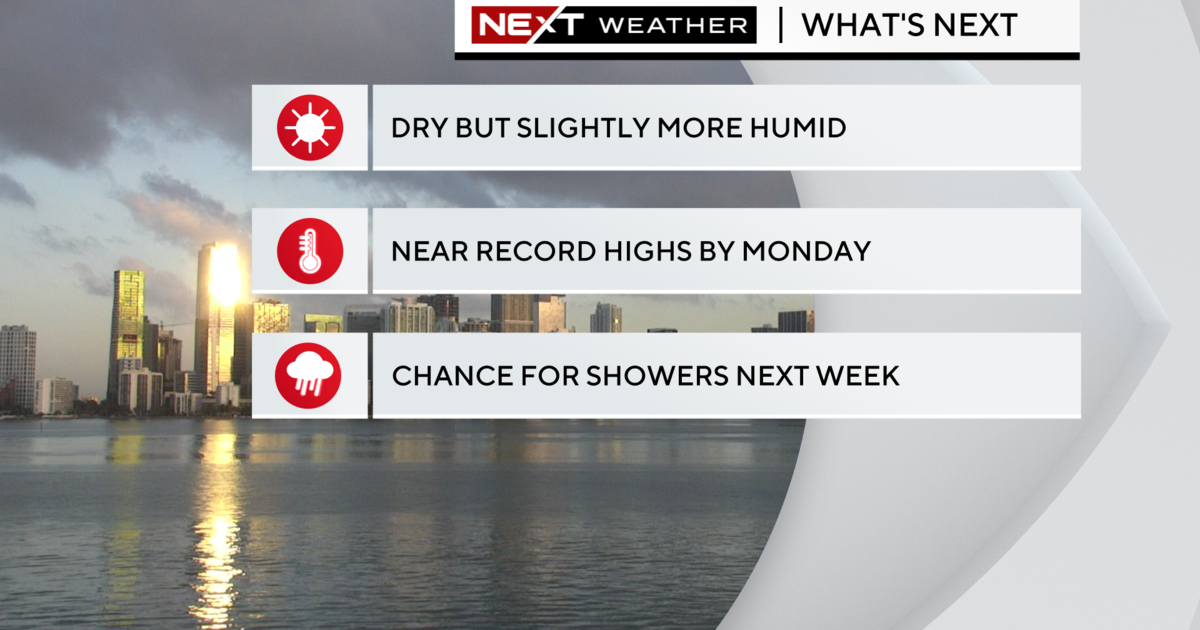Planet-Hunting Satellite TESS Discovers 'Missing Link' Exoplanets
MIAMI (CBSMiami/CNN) -- In its first year in orbit, NASA's Transiting Exoplanet Survey Satellite, or TESS, scanned the skies discovering a variety of strange worlds including more than 20 exoplanets, or "missing link" planets entirely unlike anything in our own solar system.
TESS began science operations in space in July 2018. TESS focused on the southern skies for the first year and will turn to the Northern Hemisphere for an ambitious observation campaign over the next year.
A study published Monday in the journal Nature Astronomy highlights three new planets found by TESS that are ideal for follow-up observation campaigns during the search for habitable planets.
And the new star system may harbor planets within the habitable zone, in which the temperature on a planet's surface is just right to support liquid water and potentially life.
The newly discovered exoplanets are some of the smallest and closest ever found. The three worlds, which include a rocky super-Earth and two sub-Neptunes, orbit a star just 73 light-years from Earth. Sub-Neptunes are smaller than the icy gas giant in our solar system. These two are about half the size of Neptune.
The star is an older M-dwarf called TOI-270, meaning it's the 270th TESS object of interest identified.
All three planets are similar in size, which is very different from our own solar system filled with extremes.
The two intermediate sub-Neptunes aren't much larger than the rocky planets in our solar system. They are like missing links in the understanding of planetary formation because they exist between small rocky planets and large gas giants.
"TOI-270 will soon allow us to study this 'missing link' between rocky Earth-like planets and gas-dominant mini-Neptunes, because here all of these types formed in the same system," said study author Maximilian Günther, Torres Postdoctoral Fellow at the Massachusetts Institute of Technology.
The rocky super-Earth is planet b, which closely orbits its star every three days. The sub-Neptunes, planets c and d, complete orbits of the star every five and 11 days, respectively.
Normally, this kind of star would be active, sending out flares and enduring solar storms. But this older star is quiet, the astronomers said, and provides its planets with a steady brightness. It's only about half as hot as our zone
This allowed astronomers to learn more about the planets. It's also encouraging because a quiet star means that if there are other planets in this system that are within the habitable zone, they could support life. Planet d is 10 million kilometers from the star. The habitable zone around the star could begin at 15 million kilometers, the researchers said.
Planet d intrigued the researchers because the top of its atmosphere appeared to be temperate and possibly support life, but further study revealed that the rest of the atmosphere is probably very thick and dense, trapping heat to the point where the planet's surface would be too hot to support life.
"TOI-270 is a true Disneyland for exoplanet science, and one of the prime systems TESS was set out to discover," Günther said. "It is an exceptional laboratory for not one, but many reasons -- it really ticks all the boxes."
This discovery rounds out the first successful year of observations by TESS.
"The pace and productivity of TESS in its first year of operations has far exceeded our most optimistic hopes for the mission," said George Ricker of MIT, TESS's principal investigator. "In addition to finding a diverse set of exoplanets, TESS has discovered a treasure trove of astrophysical phenomena, including thousands of violently variable stellar objects."
The objects that TESS finds can also be followed up for observation by future space telescopes, like the James Webb Space Telescope launching in the 2020s.
(©2019 CBS Broadcasting Inc. All Rights Reserved. Cable News Network, Inc., a Time Warner Company, contributed to this report.)



